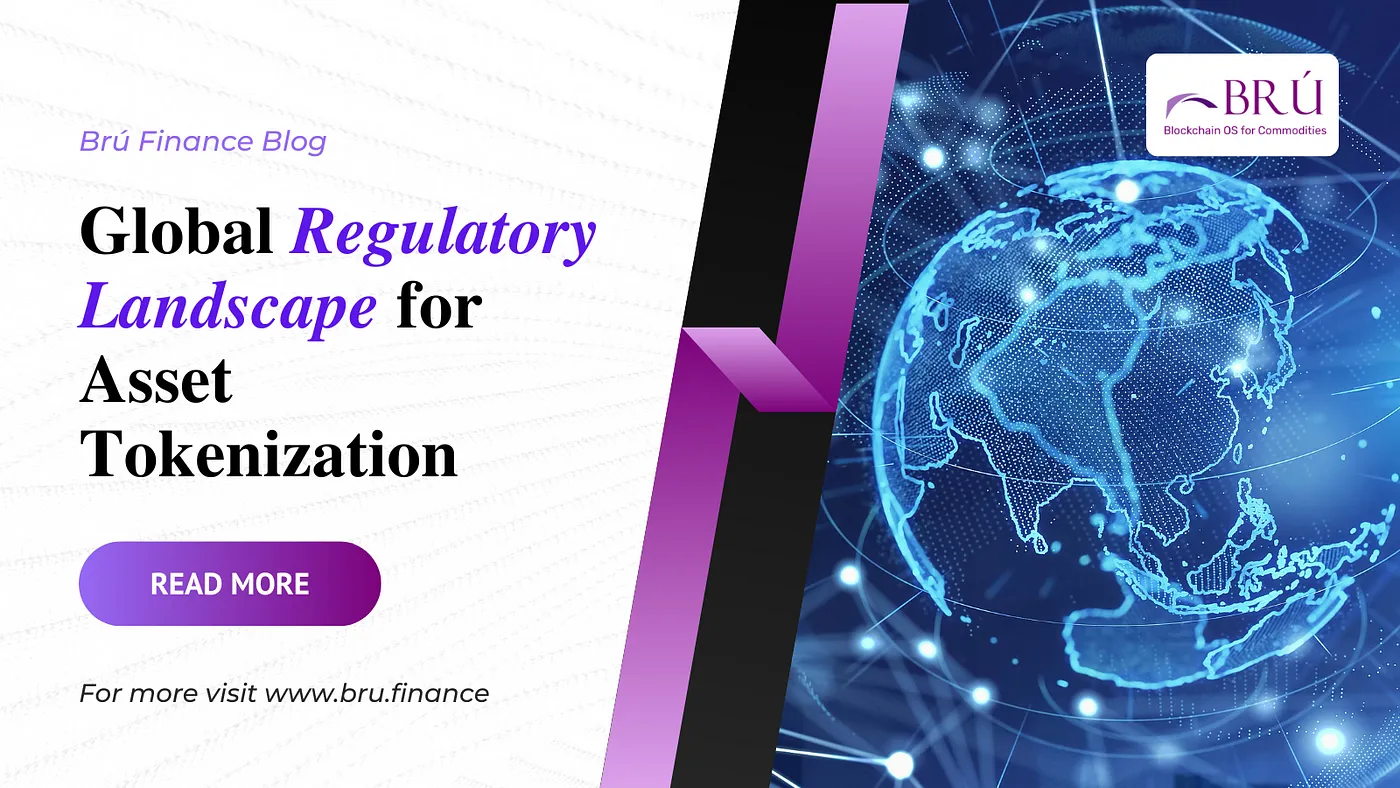
Global Regulatory Landscape for Asset Tokenization
Published On : November 15, 2024
The cryptocurrency industry has transformed significantly over the years, with decentralized finance, or DeFi, marking one of the most revolutionary shifts. DeFi has changed the way we think about financial services, moving away from traditional, centralized systems to open, permissionless, and decentralized protocols.
Within this evolving landscape, asset tokenization has emerged as a powerful technology set to reshape the financial sector. By broadening access to diverse investment opportunities, asset tokenization can enhance market efficiency, liquidity, and transparency. Yet, this rapid growth has also brought up concerns around regulatory oversight and the need for a unified global approach.
The Current Regulatory Landscape
Asset tokenization regulations are still in development, and there’s no single, universally accepted framework. Different jurisdictions have taken varied stances, ranging from cautious skepticism to enthusiastic support.
Switzerland
Switzerland has led the way in establishing a regulatory framework for digital asset tokenization. The Swiss Financial Market Supervisory Authority (FINMA) has proactively regulated the issuance, sale, and trading of tokenized assets, even creating a sandbox environment for testing tokenization projects. Switzerland’s approach focuses on risk-based regulation, adjusting requirements to match the specific risks of each asset type. This flexibility supports innovation, positioning Switzerland as a hub for asset tokenization.
Singapore
Singapore is also a key player in asset tokenization regulations. The Monetary Authority of Singapore (MAS) has set clear guidelines for security token issuance and established a regulatory sandbox for project testing. MAS follows the principle of “same activity, same risk, same regulation,” applying consistent rules to both tokenized and traditional securities. MAS has also fostered global cooperation, engaging with organizations like the Financial Stability Board (FSB) to promote a cohesive international market for tokenized assets.
Abu Dhabi
The Abu Dhabi Global Market (ADGM) has adopted a forward-thinking approach, with its Financial Services Regulatory Authority (FSRA) creating a comprehensive framework for security tokens. The FSRA has established a Digital Securities Exchange (DSX) and taken measures to protect investors from fraud and market abuse. By focusing on innovation and investor safety, Abu Dhabi is building a competitive environment for tokenized asset growth.
Hong Kong
Hong Kong’s Securities and Futures Commission (SFC) has actively explored asset tokenization regulations, issuing several guidance papers and circulars, including the Tokenized Securities Circular in November 2023. By following a “same activity, same risk, same regulation” approach, the SFC aims to bring clarity and stability to businesses operating in tokenization. The SFC is also working internationally, collaborating with the FSB and CPMI on standards for a global tokenized asset market.
United States
The U.S. has taken a more cautious route, with the Securities and Exchange Commission (SEC) applying existing securities laws to tokenized assets. Though this approach creates some uncertainty, the SEC has shown a willingness to explore flexible approaches, offering a sandbox for innovation and collaborating globally on regulatory standards.
United Kingdom
In the UK, the Financial Conduct Authority (FCA) has also opted for a cautious approach. Though the FCA applies existing securities laws to tokenized assets, it has set up a sandbox to test new projects and remains open to innovative regulatory methods. The FCA’s wait-and-see stance aims to balance investor protection with support for innovation.
France
The French Autorité des marchés financiers (AMF) has introduced risk-based regulation, tailoring requirements to the risk levels of different tokenized assets. France’s sandbox allows safe experimentation while its clear guidelines provide stability and investor protection.
Thailand
Thailand’s SEC has proactively created a regulatory framework for security tokens, establishing specific rules for the digital asset class, and requiring licenses for businesses in this space. Thailand’s comprehensive approach has positioned it as a regional leader in Southeast Asia.
Malaysia
Malaysia’s Securities Commission (SC) supports asset tokenization and has issued guidelines for digital asset sales. Malaysia’s digital token offerings must go through registered Recognized Market Operators (RMOs), which adhere to strict licensing and operational standards.
The regulatory landscape for digital asset tokenization is maturing, and there is a strong trend towards a harmonized approach across the globe. This development will bring greater certainty for businesses and investors and support the creation of a global market for tokenized assets.
In both India and the global market, tokenization is set for substantial growth, fueled by technological advancements, supportive regulations, and shifting investor interests. From increasing liquidity in traditionally illiquid assets to expanding investment access, tokenization has the power to transform finance on a global scale
As regulators increasingly acknowledge the benefits of asset tokenization, they are crafting frameworks that encourage growth while safeguarding investors. We can expect robust expansion in this space as businesses and investors capitalize on the opportunities that tokenization presents.
For more updates and latest news about Brú Finance, please join our Twitter Channel, Discord server, LinkedIn, Telegram at
Please join our Discord events and Twitter AMAs to connect directly with our founders and ask your queries.
Discord: https://discord.gg/8C9SZXDy2r
Telegram Channel : https://t.me/bruofficial
Twitter : https://twitter.com/bru_finance
LinkedIn : https://www.linkedin.com/company/bru-finance/
Facebook :https://www.facebook.com/brufinance/
Instagram :https://www.instagram.com/brufinance/?igshid=YmMyMTA2M2Y%3D

 1.png)